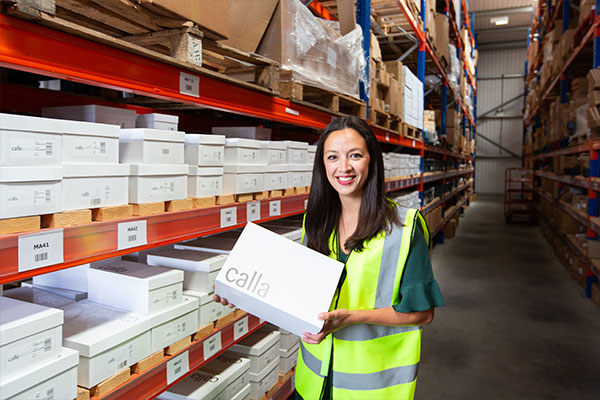Cross-border returns don’t have to be a cost burden. Discover how EU brands can turn returns into a customer retention strategy with faster processing, cost control, and compliance. Speak to an expert today.
Sustainable logistics: Cutting carbon in cross-border fulfilment
Audio reader
You’ve nailed your product, your packaging pops, and your online experience is smoother than Jeff Bezos’ head. But if your logistics are leaving a trail of emissions across Europe, you might be delivering more than just customer delight; you could be delivering a climate conundrum too.
With cross-border eCommerce continuing to surge, logistics and sustainability are on a collision course. And while greenwashing might work for a while, long-term growth (and long-term customer loyalty) comes from greener, leaner fulfilment models that actually walk the walk, not just ship the box.
So, let’s unpack how you can reduce your carbon footprint in cross-border fulfilment, without sacrificing speed, service, or your bottom line.
Why sustainability in logistics is no longer optional
If you’re still thinking of sustainability as a ‘nice to have’, it’s time for a rethink. Consumers aren’t just passively browsing eco-friendly options; they’re actively choosing brands that prove their commitment to the planet.
According to Sendcloud's 2023 Delivery Compass, 65% of European shoppers say they would like more sustainable delivery options when shopping online. Meanwhile, Capgemini Research found that 79% of consumers are changing their purchase preferences based on sustainability - and 70% said they would pay more for products from environmentally responsible companies.
In other words: if your logistics don’t match your values, your customers might just log out. Eek.
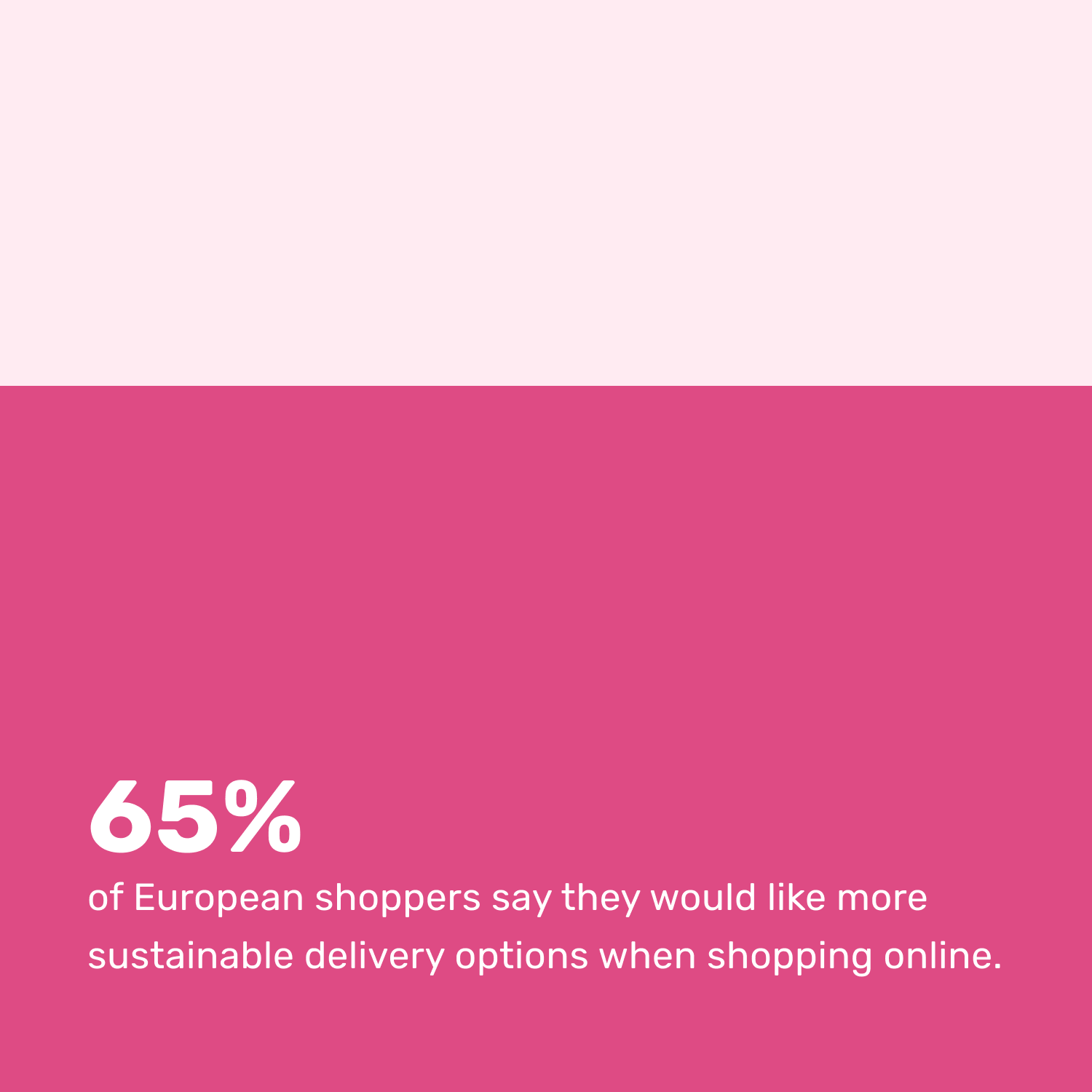
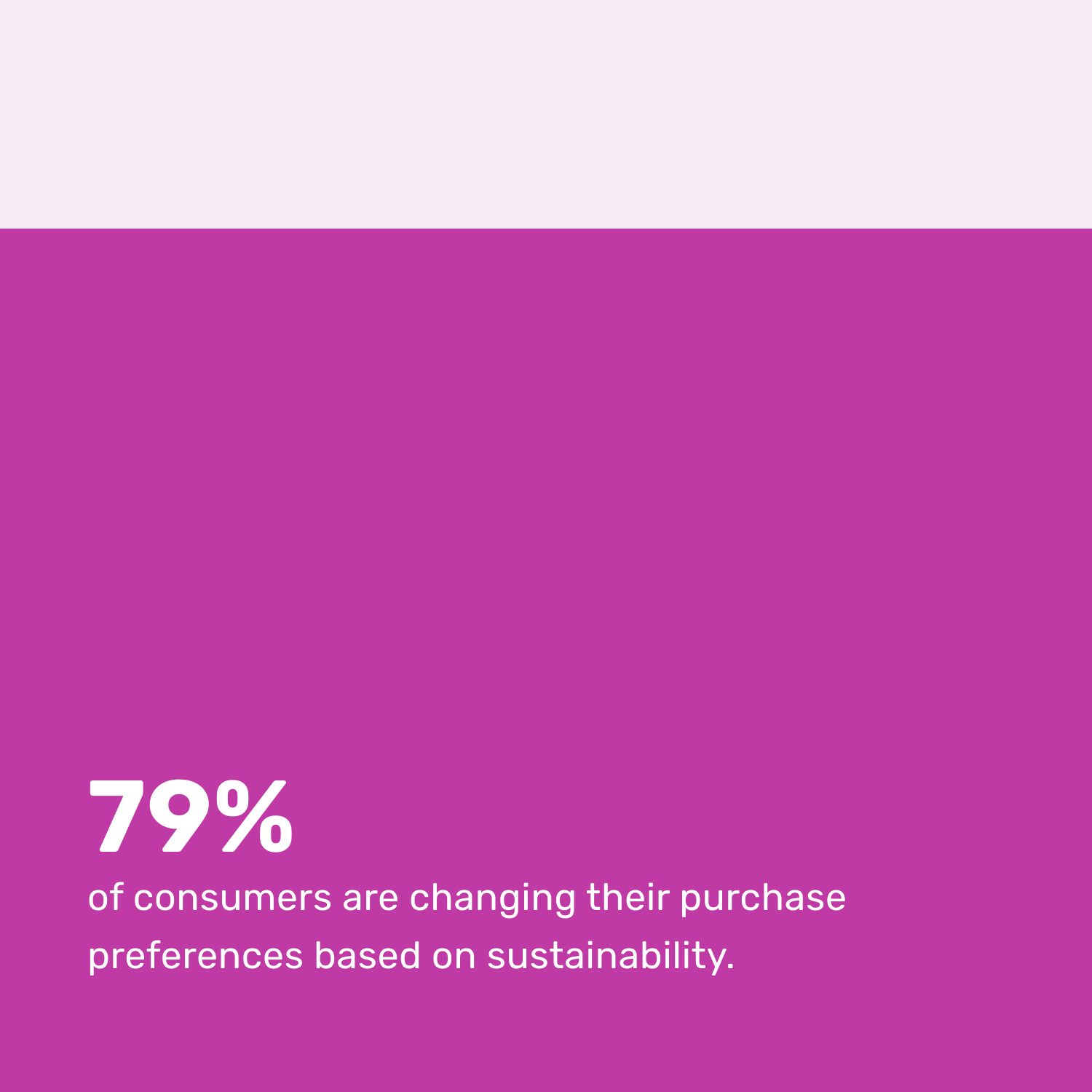
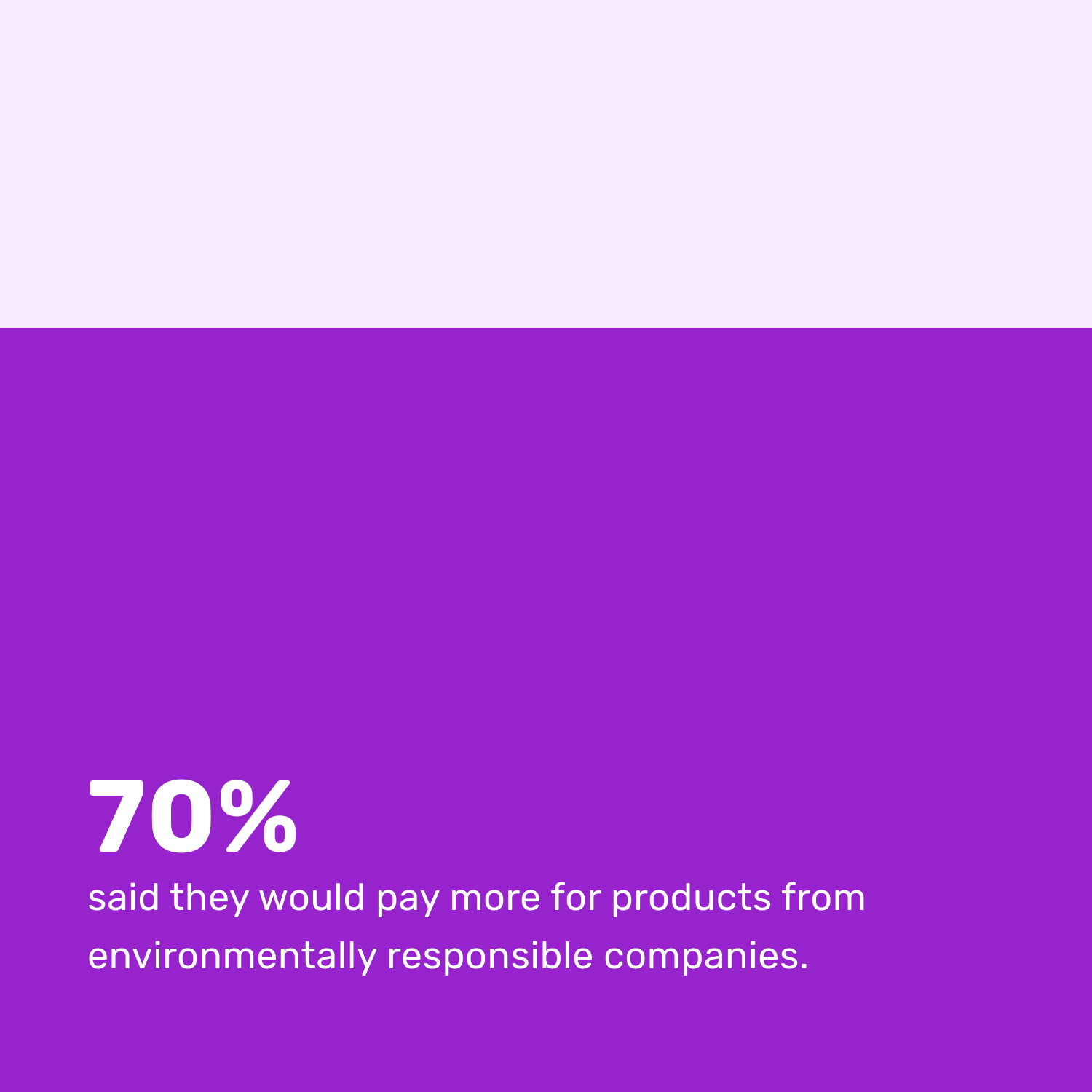
The carbon cost of cross-border commerce
Moving goods across borders comes with a heavy emissions bill. According to the European Environment Agency, freight transport accounts for roughly 6% of total EU greenhouse gas emissions, with road freight alone responsible for more than 70% of freight-related emissions.
Add air freight to the mix - often used to keep delivery times competitive - and the carbon footprint climbs even higher. Air cargo produces around 500 grams of CO₂ per tonne-kilometre, compared to 60–150 grams for road and just 18 grams for rail, according to data from EcoTransIT World.
So, what’s the answer? Burn fewer fossil fuels? Slow everything down? Close the borders? Not quite.
The trick is to rethink how your logistics network operates - and focus on optimising everything from storage locations and carrier selection to packaging and returns.
Sustainable fulfilment isn’t about doing less; it’s about doing things smarter
At fulfilmentcrowd, we believe that being greener isn’t about making sacrifices - it’s about making sense. And the good news? There are plenty of ways to reduce your carbon footprint without disrupting service or slowing down sales.
Let’s look at how.
-
Ship from where it makes sense
One of the biggest wins when it comes to reducing emissions is simple: get closer to your customers.
Instead of shipping everything from one central warehouse in the UK or mainland Europe, consider a distributed model, where you store stock in multiple locations closer to your customers. That way, the final delivery leg (aka the carbon-intensive last mile) is shorter and faster.
With fulfilmentcrowd’s network of centres across the UK and EU (including Germany, France, and the Netherlands), you can store your products in-region and avoid the dreaded double-whammy of long-haul shipping and customs delays. It’s better for the planet, and your customers get their orders quicker. Win-win.
-
Rethink your packaging
There’s no point shipping an eco-friendly bamboo toothbrush in a box big enough for a microwave. Overpackaging doesn’t just look wasteful - it is wasteful. It takes up more space in vans, planes, and lorries, which means more emissions per parcel.
According to DS Smith, nearly 60% of UK and EU consumers believe retailers use too much packaging, and one-third have stopped buying from brands that aren’t environmentally responsible.
Smart moves:
- Use right-sized packaging to reduce waste and fit more deliveries per journey.
- Switch to recyclable or biodegradable materials, and ditch unnecessary plastic.
- Offer minimalist packaging options for customers who opt in.
We’ve helped dozens of fulfilmentcrowd customers switch to eco-friendly, right-sized packaging, reducing material use and cutting shipping volume without compromising protection.
-
Choose greener carriers
Not all carriers are created equal. Some offer carbon-neutral delivery by offsetting emissions; others operate electric fleets or consolidate deliveries for efficiency.
A few things to consider:
- Does your carrier offer carbon-offset options or use electric or hybrid vehicles?
- Can they deliver to consolidated pick-up points, reducing last-mile mileage?
- Are they investing in sustainable infrastructure, like renewable energy hubs?
We work with a broad network of carrier partners across the UK and Europe - and that means you get to pick the ones that align best with your sustainability goals, delivery times, and customer needs.
-
Make returns less wasteful
Returns are part and parcel (sorry) of online retail. But they come at a cost: additional shipping, more packaging, and more emissions.
The return rate for eCommerce in Europe is around 20–30%, according to data from Statista, and the environmental impact of handling those returns can be significant - especially if items are damaged, destroyed, or discarded.
Sustainable returns strategy:
- Encourage customers to make informed choices with better sizing guides, accurate images, and reviews.
- Offer consolidated returns points or partner with local drop-off hubs.
- Refurbish or resell returned items where possible.
- Work with a fulfilment provider that can manage returns efficiently and keep items in circulation.
We help brands integrate smarter returns solutions, including local return points, in-warehouse product assessment, and restocking, helping to lower waste, reduce shipping mileage, and preserve product value.
-
Offset where you can’t reduce
Some emissions are unavoidable - especially when shipping internationally. But you can still make a difference by investing in certified offset programmes that fund environmental projects such as reforestation, renewable energy, or carbon capture.
Look for carriers and partners who support Gold Standard, Verra, or UN-accredited carbon offset schemes. But remember: offsetting should complement your sustainability efforts, not replace them.
-
Embrace data-driven optimisation
You can’t manage what you don’t measure. Tracking your emissions across your supply chain is the first step in making meaningful reductions.
Whether it’s through order management software, carrier dashboards, or fulfilment analytics, gathering data helps you:
- Identify hotspots (e.g. a particular country with higher emissions).
- Optimise inventory placement based on demand patterns.
- Improve delivery efficiency by consolidating shipments or rerouting intelligently.
We provide fulfilmentcrowd clients with real-time data insights to support carbon reduction strategies - from carrier selection to order routing and inventory distribution.
-
Be transparent with your customers
Today’s consumers are savvy; they can spot a green sticker from a green initiative a mile off. If you’re making sustainability improvements, don’t be shy about it - but keep it honest, specific, and measurable.
That means:
- Sharing your carbon-reduction targets and progress.
- Clearly labelling eco-friendly delivery or packaging options.
- Avoiding vague terms like ‘planet-friendly’ unless you’ve got proof.
Transparency builds trust and trust builds loyalty.
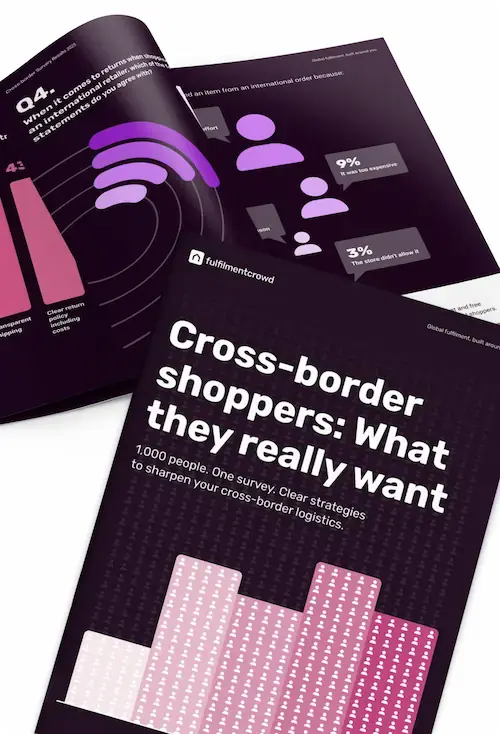
Download our Cross-boarder shopping survey
Why it matters for your bottom line
Beyond ethics, regulation is catching up. The EU’s Corporate Sustainability Reporting Directive (CSRD) will soon require more businesses to disclose detailed environmental performance. In the UK, pressure from investors, consumers, and industry bodies is prompting similar shifts.
And then there’s the competitive edge. A 2022 report by BCG found that companies leading in sustainability also lead in financial performance - because they’re more resilient, more efficient, and more attractive to both customers and investors.
Put simply: going green is good for business.
What fulfilmentcrowd is doing
We’ve been working hard behind the scenes (and in the warehouse aisles) to embed sustainability into everything we do. From solar-powered fulfilment centres to recyclable packaging options and smarter shipping routes, we’re reducing the impact of eCommerce - one parcel at a time.
- We’re actively reducing emissions across selected European routes by optimising transport modes, consolidating shipments, and storing stock closer to customers
- Our centres in the UK, Germany, Netherlands and Australia operate with renewable energy sources.
- We work with sustainability-focused carriers and constantly review performance to help our clients do more with less.
Future thoughts
Sustainability in logistics isn’t a trend. It’s the future. Because without a stable planet, there simply is no future. And for eCommerce brands shipping across borders, it’s not just about ticking boxes; it’s about building a better business that delivers on every level.
By rethinking how and where you fulfil orders, using smarter packaging, picking greener carriers, managing returns responsibly, and investing in data and transparency, you’ll not only reduce your carbon footprint, you’ll build a brand that travels further with less impact.
And let’s face it, saving the planet isn’t bad PR either.
Ready to go greener with your cross-border logistics?
Looking for more industry insights?
Check out our other recommendations just for you!
See allCross-border eCommerce is transforming retail. Discover why EU brands should invest in international expansion and how to manage fulfilment, customer expectations, and hidden costs. Speak to an expert today.
Discover how Calla Shoes scaled from boutique brand to global success with fulfilmentcrowd’s expert eCommerce fulfilment solutions. 460% order growth, 33% CAGR, and international expansion supported by world-class logistics.






 By Alice Davies
By Alice Davies




